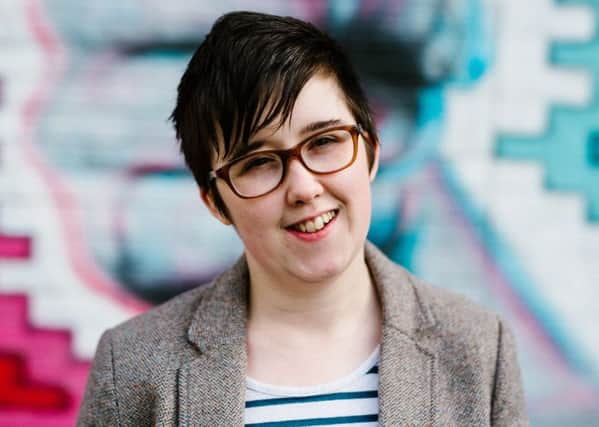Why we must look for new ways to safeguard our free press – Andy Wightman


With the growth of social media platforms, unprecedented numbers of people have the ability to tell the world their stories.
But while social media helps spread ideas and news, too many regimes around the world continue to frustrate and impede the work of journalists and others seeking to hold to account the rich and powerful. According to Reporters Without Borders, 66 journalists were killed worldwide in 2018 and 174 were imprisoned.
Advertisement
Hide AdAdvertisement
Hide AdOn Friday, I attended the Scottish Press Freedom Summit organised by Scottish PEN, which defends the freedom of writers and readers, the National Union of Journalists, Saltire Society and Edinburgh University. We heard from Egyptian and Venezuelan journalists living in exile in Scotland and from journalists, cartoonists and lawyers working in the UK on the challenges facing a free press. At one extreme, there are the killings, imprisonment and intimidation that take place in countries like Russia, Saudi Arabia, and Egypt. Even in EU member state Malta, the murder of Daphne Caruana Galizia, the journalist who exposed the darker side of Maltese politics, remains unsolved and her family continues to fight for the truth about her fate and who was responsible.
More perniciously, we heard reports of the subtle ways in which the freedom of the press is eroded through the chilling effect of threats of defamation, the self-censorship that accompanies the culture of fear when journalists are being killed or intimidated with impunity, surveillance and the inappropriate use of national security legislation.
More widely, there remain concerns in many countries about the ownership and control of the media. Despite the liberating effects of social media, a free society still relies on quality journalism to enable the citizen to understand what is being done in their name and to investigate matters of public interest.
As a politician, I expect the media to report, scrutinise and question the things I say and do. The same should be true of all who hold positions of power and influence. But too often this is not happening. The print media has shrunk across the UK and resources have been squeezed. The consequence is less attention paid to the stories that matter, lower standards of reporting and often the complete absence of any reporting at all on vital issues both local and national. Different models of media have emerged including the employee-owned West Highland Free Press and the online Ferret co-operative. These and others point the way ahead for resilient and effective journalism in Scotland but they are in a minority and face their own challenges.
One of the challenges to a free press identified at the Scottish Press Freedom Summit was the question of ownership and control. Across the UK, the ownership of newspapers has become more concentrated in the hands of rich and powerful individuals whilst local media titles have been disappearing.
However, with crowdfunding, community shares, community interest companies, co-operatives and mutuals, all providing the key ingredients of a more democratic and accountable ownership, it is time to think differently about media ownership to put the future of our free press on a more stable and secure footing.
Andy Wightman is a Scottish Green MSP for the Lothians.
